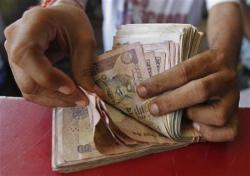With memories of the bitter experience faced by the banking industry in 2008, most Indian banks prefer going for the safest bet - the home loans market - to grow the unsecured loan portfolio. For unsecured loans, they prefer catering to the needs of existing customers, which is comparatively less risky.
For unsecured loans, they prefer catering to the needs of existing customers, which is comparatively less risky.
"The home loans market is the largest market and the safest business," said Jairam Sridharan, senior vice-president and head - consumer lending and payments, Axis Bank.
Sridharan said, "At Axis Bank, we are interested in unsecured business and doing it. But we are focused almost exclusively on our internal base of customers."
Sridharan added it is easy for banks to do due diligence on their existing clients.
"Banks like Axis have a large customer base and we know a lot about our customers who have accounts with us. We know their cash inflows and outflows. If I can get business growth by satisfying the needs of these customers, there is no reason for us to go out and look for (new) business," said Sridharan.
Another bank, Dena Bank, is equally cautious in putting emphasis on retail growth in order to make up for sluggish corporate credit demand. According
At the same time, the bank is wary of pushing hard consumer loans, as there may be defaults due to job losses, especially at a time when the economy is showing signs of stress.
As on September 30, Dena Bank's retail advances are Rs 7,485 crore (Rs 74.85 billion) in the total loan book of Rs 59,406 crore (Rs 594.06 billion).
Similarly, IDBI Bank does not want to have much exposure in unsecured loans.
"Even if we give unsecured loans, we would prefer giving it to our bank customers. Just because credit growth is not picking up does not mean we will give money to anyone," said R K Bansal, executive director (retail), IDBI Bank.
However, foreign banks are a lot more aggressive in growing the unsecured loan book, and they are also targeting customers who do not have an existing banking relationship with them.
"The unsecured loans product works best when you know the customers well. It is not about a crisis, this product will remain a risky product even in normal economic cycles. Foreign banks are targeting outsiders because they know how to price these products and they also have that risk appetite," said Vaibhav Agrawal, vice-president (research), Angel Broking.





